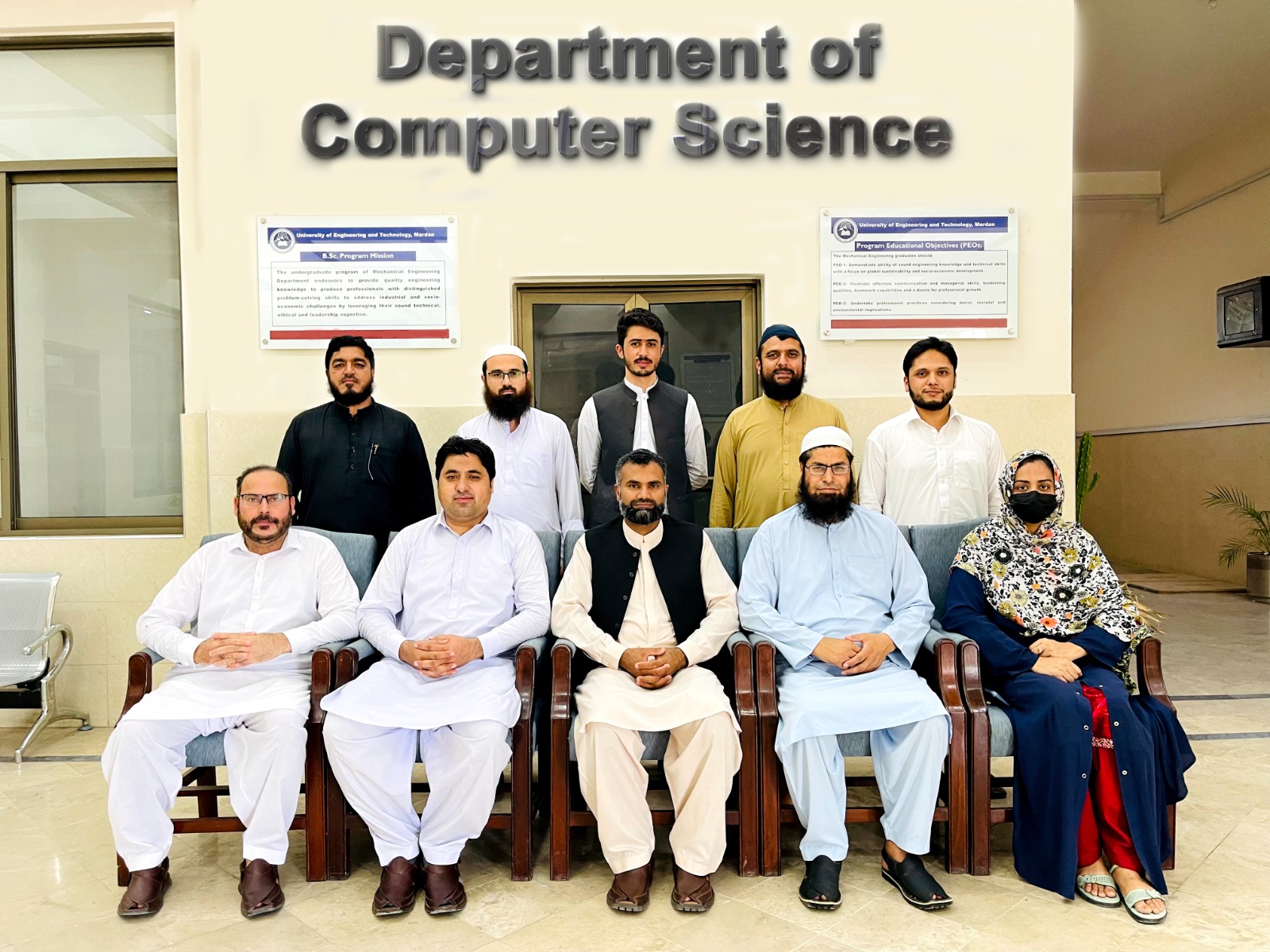Introduction
The Department of Computer Science is the first newly established department of UET Mardan. It provides excellent classroom and lab facilities to students and aims at equipping the students with the knowledge and skills needed for solving the challenges of modern age by exploiting the enormous possibilities offered by computers and related technologies.
The discipline of Computer Science involves understanding of computers and computational processes. It is concerned with the study of information storage, its transfer and transformation. Particular interest is placed on developing effective ways to solve computing problems. The discipline ranges from theoretical studies of algorithms to practical problems of implementation in terms of computational hardware and software.
Department Mission
The mission of the Computer Science program is to produce professionally sound graduates, by imparting them quality education and skills in the field of Computing, who can solve contemporary, multidisciplinary and emerging problems to serve the needs of academia, industry and community thereby playing a vital role in the socio-economic development.
Academic Programs
The Department of Computer Science offers the following program:
-
B.S Computer Science
- Specilization in Data Science
- Specilization in Artificial intelligence
- M.S. Computer Science
Career Opportunities
The knowledge and skills gained by a computer science graduate are highly valued in the modern age. The scope of computer science is rapidly increasing, offering to its graduates a wide range of opportunities in many different industries such as software houses, data warehouses, multinational companies, governmental agencies, universities and healthcare institutions. Computer science graduates can work as IT consultants, applications programmers, sales and business developers, cybersecurity consultants, information security specialists, information systems managers, database administrators, multimedia programmers, systems analysts, games developers etc.
Research
The department is actively pursuing research in the following areas:
- Optimization Algorithms
- Human-Computer Interaction (HCI)
- Agile Software Development
- Software Outsourcing
- Semantic Web
- Software Testing
- Web Preservation
- Artificial Intelligence and Machine Learning
- Software-Defined Networking (SDN)
- Communications Network
Laboratories
The department has the following state-of-the-art laboratories:
- Computing Lab
- Programming Lab
- Networking Lab
- Artificial intelligence (AI) & Data Science (DS) Lab

